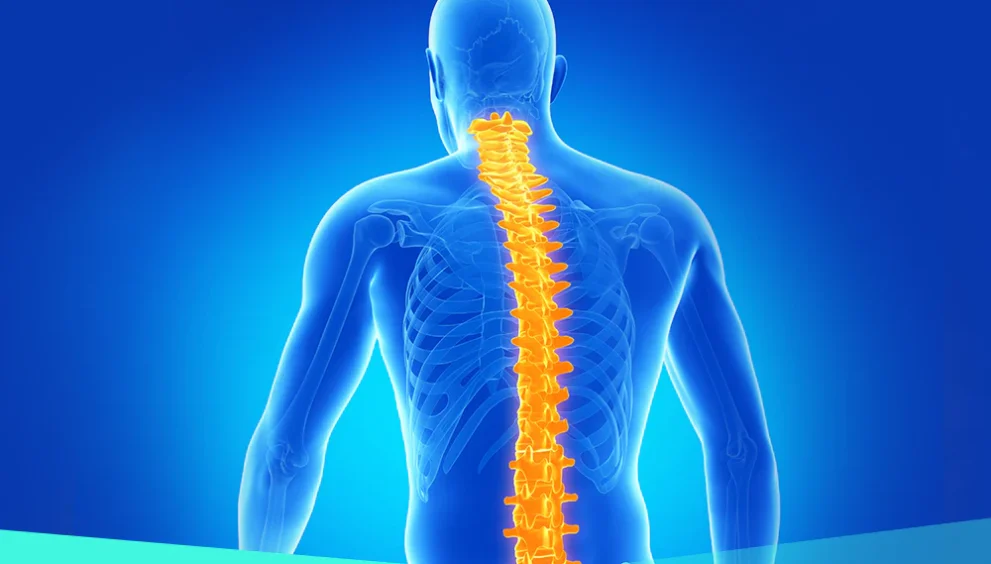Pain in Lower Back When Sneezing: Stop the Ache with These Proven Fixes

Have you ever let loose a sneeze, only to wince as a sharp pain in lower back when sneezing shoots through your spine? It’s a jarring moment that can turn a harmless “achoo” into a cry for help. For millions of Americans, this unexpected discomfort is more than a one-off—it’s a signal something’s amiss in their body. Whether you’re a desk worker, a gym enthusiast, or just someone battling seasonal allergies, that twinge can disrupt your day. Drawing from medical insights, Reddit communities, and expert advice, let’s explore why sneezing triggers lower back pain, what you can do about it, and how to keep your spine happy.
Why Does Sneezing Hurt Your Back?
Sneezing is no gentle breeze—it’s a forceful expulsion that engages your entire body. When you sneeze, your diaphragm contracts, your core tightens, and your spine absorbs the sudden pressure. For a healthy back, this is usually no big deal. However, if your lower back is already compromised, that explosive movement can spell trouble. The rapid jolt can strain muscles, irritate nerves, or aggravate existing conditions, leading to pain in lower back when sneezing.
On Reddit’s r/Health, a user described it vividly: “It’s like my back forgets how to brace itself when I sneeze—bam, instant pain.” This makes sense biomechanically. Unlike deliberate movements like lifting weights, sneezes catch you off guard, leaving your spine vulnerable. Consequently, understanding this reflex is the first step to tackling the discomfort.
Common Culprits Behind the Pain
Several factors can turn a sneeze into a back-pain trigger. Muscle strain is a frequent offender, especially for Americans who sit for long hours or overdo it at the gym. A pulled lumbar muscle might feel fine until a sneeze amplifies the tension. Similarly, herniated discs—where the cushion between vertebrae bulges—can flare up under sudden pressure, pinching nerves and causing sharp pain.
Other culprits include sciatica, where an irritated sciatic nerve radiates pain from the lower back to the legs, and spinal arthritis, which stiffens joints and makes them sensitive to jolts. For some, even poor posture weakens the back over time, setting the stage for sneeze-related aches. Each condition reacts differently, but they all share one trait: sneezing exposes their weak spots.
Pain in Lower Back When Sneezing: Key Causes
Strained muscles or sprained ligaments are among the most common reasons for sneeze-induced back pain. Picture this: you’ve been slouching at your desk all week, and your lumbar spine is already tight. A sneeze forces those overworked tissues to contract abruptly, resulting in a painful tug. Reddit’s r/backpain is full of similar stories, with one user noting, “I sneezed after a long drive, and my lower back screamed for days.”
Moreover, muscle imbalances—where one side of your back is stronger than the other—can exacerbate the issue. For Americans juggling sedentary jobs and weekend workouts, this imbalance is a growing concern. Stretching and strengthening exercises can help, but ignoring the problem often leads to recurring pain.
Disc and Nerve Problems
A herniated disc is like a jelly donut with a leak—pressure from a sneeze can make that “jelly” press on nearby nerves, causing intense pain. This is especially true for middle-aged Americans, as discs naturally degenerate over time. Sciatica, often linked to disc issues, adds another layer, with sneezes sending electric-like shocks down the leg.
Nerve-related pain tends to linger, unlike muscle soreness. A r/ChronicPain user shared, “Sneezing feels like someone’s stabbing my sciatic nerve—takes my breath away.” Therefore, if your pain radiates or persists, it’s a sign to dig deeper into spinal health.
Chronic Conditions
Arthritis and spinal stenosis—narrowing of the spinal canal—are less common but serious causes. These conditions, prevalent among older Americans, make the spine less forgiving of sudden movements. Sneezing can inflame already sensitive joints or compress nerves, amplifying discomfort. Additionally, osteoporosis weakens vertebrae, raising the risk of micro-fractures during forceful actions like sneezing.
While these sound daunting, they’re manageable with proper care. However, misjudging them as “just a twinge” can delay relief, so paying attention to patterns is fundamental.
Diagnosing the Problem
Not every sneeze-pain combo warrants a doctor’s visit, but certain red flags demand attention. If the pain is severe, lasts more than a few days, or includes numbness, tingling, or leg weakness, it’s time to act. These could signal a herniated disc, nerve compression, or worse. For Americans with health insurance, a primary care visit or orthopedic consult can clarify the issue, often followed by imaging like an X-ray or MRI.
On Reddit’s r/AskDocs, users frequently ask about sneeze-related pain, with one saying, “My back hurts every time I sneeze—is this normal?” The consensus? Occasional soreness might be fine, but recurring or intense pain isn’t. Early diagnosis prevents minor issues from becoming chronic.
Self-Assessment Tips
Before rushing to a clinic, try a simple self-check. Note when the pain strikes—only during sneezes, or with other movements like bending? Does it stay in your lower back or spread? Gentle stretches, like a seated forward fold, can reveal if muscles are tight or if something deeper’s at play. However, avoid pushing through sharp pain, as it could worsen the injury.
Treating and Managing Sneeze-Related Back Pain
When pain in lower back when sneezing hits, quick fixes can ease the sting. Ice packs reduce inflammation if applied within the first 48 hours; after that, heat therapy relaxes tight muscles. Over-the-counter meds like ibuprofen or acetaminophen can dull the ache, but don’t over-rely on them. A Reddit user in r/backpain swore by “ice, then heat, plus a good stretch—it’s my go-to after a sneeze flare-up.”
Additionally, bracing your core before sneezing—if you feel it coming—can stabilize your spine. It’s not foolproof, but it’s a handy trick for allergy-prone Americans facing frequent sneezes.
Long-Term Solutions
For lasting relief, focus on strengthening your core and improving posture. Physical therapy is gold, teaching exercises like planks or cat-cow stretches to support your spine. Chiropractic care or massage therapy can also help, especially for muscle tension. Dr. Sarah Mitchell, a spine health specialist, advises: “Building a resilient core is like giving your back a suit of armor—sudden movements like sneezing won’t faze it.” Her insight underscores the power of proactive care.
If sciatica or disc issues are confirmed, treatments range from steroid injections to, rarely, surgery. Most Americans find relief with conservative methods, so don’t panic about going under the knife.
Preventing Future Pain
Prevention starts with daily habits. Ergonomic chairs and standing desks combat sedentary strain, a common issue for American office workers. Regular movement—think walking or yoga—keeps your spine flexible. Reddit’s r/Fitness suggests “short stretch breaks every hour” to avoid stiffness, especially for those prone to sneeze-related pain.
Moreover, weight management reduces stress on your lumbar spine, while hydration keeps discs supple. Small tweaks, like sleeping on a firm mattress, also make a difference.
Allergy Control
Since sneezing triggers the pain, managing allergies is a game-changer. Antihistamines, nasal sprays, or air purifiers can curb sneezing fits, especially during America’s pollen-heavy spring. A r/Allergies user recommended, “Get a HEPA filter for your bedroom—it cut my sneezing in half.” Fewer sneezes mean fewer chances for back pain to flare.
Concluding Thoughts
Pain in lower back when sneezing is a wake-up call, not a life sentence. For Americans, it’s a reminder to listen to your body—whether it’s a strained muscle crying for rest or a disc begging for care. From Reddit’s raw experiences to expert wisdom, the path to relief is clear: understand your pain, treat it wisely, and build a stronger, sneeze-proof spine. So, next time you feel a sneeze brewing, don’t just grab a tissue—brace your core, check your posture, and take charge of your health. Your back will thank you, and you’ll be ready to face the world, one “achoo” at a time.
Therapy for Tendonitis in Foot: Kick Foot Pain to the Curb Fast!








































































































































































































































































































































































































































































































